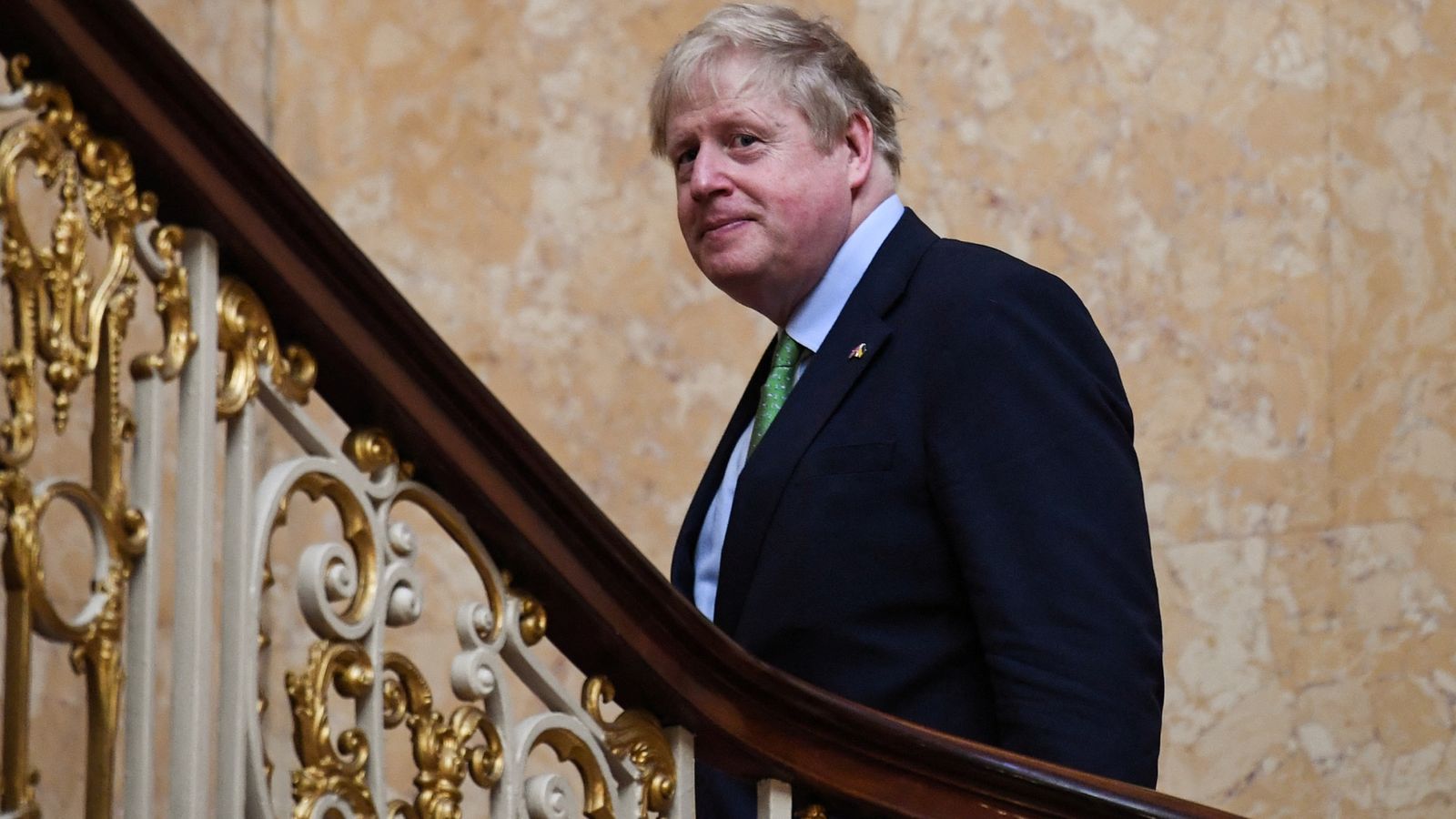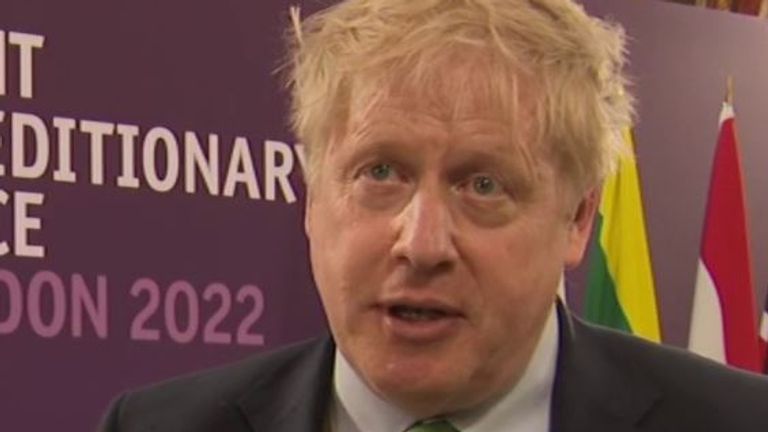Boris Johnson will hold talks with the leaders of Saudi Arabia and the United Arab Emirates as he bids to end the West’s “addiction” to Russian oil and gas.
With Vladimir Putin’s increasingly barbaric assault on Ukraine set to enter a third week, the prime minister is visiting the Gulf in a stepping-up of his efforts to starve Moscow of its income from fossil fuels.
Mr Johnson will meet with Crown Prince Mohammed bin Zayed in Abu Dhabi on Wednesday, before travelling to Riyadh to speak with Crown Prince Mohammed bin Salman.
There is a widespread expectation that the prime minister will use the trip to try and persuade Gulf states to boost their own production of oil and gas.
Read more: Kyiv says ‘room for compromise’ in talks – but Putin gives gloomier update
This would allow Western nations to wean themselves off Russian supplies and deal a further financial blow to Moscow.
However, Mr Johnson is facing criticism over his trip from both MPs and human rights campaigners – as it comes just days after Saudi Arabia conducted a mass execution of 81 men.
The Saudi crown prince has also been largely shunned by the West since the 2018 murder of journalist Jamal Khashoggi, which he is accused of having ordered.
PM’s intent to build ‘widest possible coalition’ so Putin does not succeed
Just over three years ago, Mr Johnson himself described the killing of Khashoggi as “barbaric act” and suggested the Saudi state had “copied the playbook of Vladimir Putin” with the “ostentatious horror of this murder”.
Fears have been expressed that – in seeking to now turn away from Putin’s regime – the UK and other Western nations could instead find themselves more reliant on other leaders accused of human rights abuses.
The prime minister swerved questions about the mass execution and Khashoggi’s murder on Tuesday, as he stated his intent to build the “widest possible coalition to ensure that Vladimir Putin does not succeed” in Ukraine.
Downing Street said the PM was expected to use Wednesday’s visit to discuss with Gulf leaders his current efforts to improve energy security and reduce volatility in energy and food prices amid concerns over a cost of living crisis in the UK.
The talks will also focus on regional security and humanitarian relief following Russia’s invasion of Ukraine, as well as the importance of allies working together to increase the diplomatic and economic pressure on Mr Putin’s regime, Number 10 said.
Ahead of his arrival in the UAE, Mr Johnson said: “The brutal and unprovoked assault President Putin has unleashed on Ukraine will have far-reaching consequences for the world, well beyond Europe’s borders.
“The UK is building an international coalition to deal with the new reality we face. The world must wean itself off Russian hydrocarbons and starve Putin’s addiction to oil and gas.
“Saudi Arabia and the United Arab Emirates are key international partners in that effort.
“We will work with them to ensure regional security, support the humanitarian relief effort and stabilise global energy markets for the longer term.”
Number 10 said the prime minister would also discuss shared strategic priorities with the leaders of the UAE and Saudi Arabia, including the current situation in Iran and Yemen, increased security cooperation, trade and investment and supporting human rights and civil society.
UK should not depend on ‘another unreliable and sometime hostile regime’
Mr Johnson had faced calls to cancel his trip following the Saudi execution of 81 men on one day, with the group reported by Saudi state media to have been convicted on charges including terrorism and holding “deviant beliefs”.
Senior Conservative MP Julian Lewis, who chairs Parliament’s intelligence and security committee, called on ministers to ensure that “in seeking to lessen our dependence upon one source of oil and gas, we do not end up creating a source dependency on another unreliable and sometimes hostile regime”.
Ex-Labour leader Ed Miliband, now the party’s shadow climate secretary, said: “It is a sign of our vulnerability and energy insecurity as a country that the prime minister is going to Saudi Arabia to seek an increase in oil production, despite the appalling human rights record of the regime.
“Once again it demonstrates that the best solution to the energy crisis we face is a green energy sprint at home so once and for all we end of our dependence on fossil fuels.
“The best way to tackle the cost of living crisis with Labour’s plan for a windfall tax on oil and gas producers to reduce household energy bills.”
Follow the Daily podcast on Apple Podcasts, Google Podcasts, Spotify, Spreaker
Katie Fallon, of the Campaign Against Arms Trade, said Mr Johnson’s trip “signals that the prime minister plans not only to replicate but to entrench another trading relationship with a murderous regime with no regard for the right to life of their own citizens, yet alone those of another country such as Yemen”.
“When we ask ourselves how did Russia feel so emboldened as to invade Ukraine, indiscriminately targeting civilians throughout the first three weeks of this devastating war, the answer lies in decades of silence, excuses and short-sighted self-interest illustrated perfectly by the unconscionable actions of the prime minister,” she added.
Mr Johnson will miss Prime Minister’s Questions on Wednesday due to his trip, with deputy prime minister Dominic Raab to stand in for him in the House of Commons.




